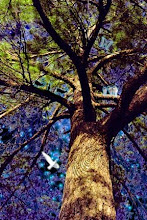Buddhism, based on the
teachings of Siddhartha Gautama
Quotations involving Buddhism:
| "Buddhism has the characteristics of what would be expected in a cosmic religion for the future: it transcends a personal God, avoids dogmas and theology; it covers both the natural & spiritual, and it is based on a religious sense aspiring from the experience of all things, natural and spiritual, as a meaningful unity" A widely cited, but apparently spurious quotation attributed to Albert Einstein 1 | |||||||||||||||||||||
| "The greatest achievement is selflessness. The greatest worth is self-mastery. The greatest quality is seeking to serve others. The greatest precept is continual awareness. The greatest medicine is the emptiness of everything. The greatest action is not conforming with the worlds ways. The greatest magic is transmuting the passions. The greatest generosity is non-attachment. The greatest goodness is a peaceful mind. The greatest patience is humility. The greatest effort is not concerned with results. The greatest meditation is a mind that lets go. The greatest wisdom is seeing through appearances." Atisha. | |||||||||||||||||||||
| "If you live the sacred and despise the ordinary, you are still bobbing in the ocean of delusion." Lin-Chi. | |||||||||||||||||||||
| "Aware of the suffering caused by the destruction of life, I vow to cultivate compassion and learn ways to protect lives of people, animals, plants, and minerals. I am determined not to kill, not to let others kill, and not to condone any killing in the world, in my thinking, and in my way of life." Thich Nhat Hanh. | |||||||||||||||||||||
"When the mind begins to become still, we then begin to truly see it. When you first try to stabilize and pacify the mind, initially it will become very busy because it's not accustomed to being still. In fact, it doesn't even necessarily want to become still, but it is essential to get a hold of the mind to recognize its nature. This practice is extremely important. ... Eventually you will find yourself in a state where your mind is clear and open all the time. It is just like when the clouds are removed from the sky and the sun can clearly be seen, shining all the time. This is coming close to the state of liberation, liberation from all traces of suffering. ... The truth of this practice is universal. It isn't necessary to call it a religion to practice it. Whether one is a Hindu or a Moslem or a Christian or a Buddhist simply doesn't matter. Anyone can practice this because this is the nature of the mind, the nature of everyone's mind. If you can get a handle on your mind, and pacify it in this way, you will definitely experience these results, and you will see them in your daily life situation. There is no need to put this into any kind of category, any kind of "ism." Venerable Gyatrul RinpocheIs Buddhism a religion?Whether Buddhism is or is not a religion depends upon how you define "religion." Many groups recognize Buddhism as a religion:
The Drepung Loseling Institute states:
Kerry Trembath writes that Buddhism is not what we call a "top-down religion" -- one in which a deity reveals religious and spiritual truths to humanity. It is a "bottom-up religion" created by humans as an attempt to express spiritual concepts:
However, some definitions of "religion" strictly require a belief in the existence of one or more supernatural deities. That would disqualify most branches of Buddhism from being considered as religious groups. With about 365 milliion followers -- 6% of the world's population -- Buddhism is the fourth largest religion in the world. It is exceeded in numbers only by Christianity, Islam and Hinduism. Buddhism was founded in Northern India by Siddhartha Gautama. However, Buddhists believe that there were countless Buddhas before him and that there will be many more after him. In the sixth century BCE, Siddhartha Gautama attained enlightenment and assumed the title Lord Buddha (one who has awakened) Buddhism later died out in India, but had become established in Sri Lanka. From there, it expanded across Asia, evolving into two or three main forms:
To these might be added:
Since the late 19th century:
|

